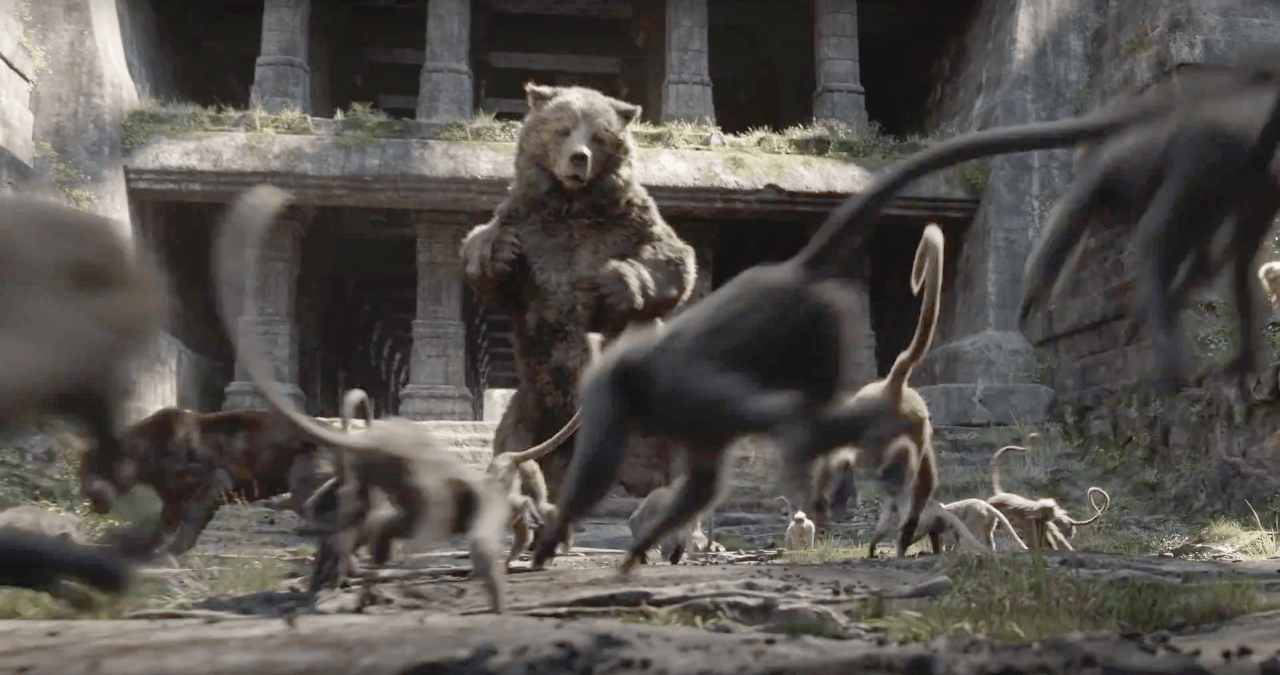The 1967 animated version of The Jungle Book, adapted from Rudyard Kipling’s collection of stories and directed by Wolfgang Reitherman, is one of Disney’s most beloved classics.
What Jon Favreau has attempted with his translation of that production into live action is ambitious to say the least. Another in a growing list of live-action adaptations of classic Disney animations, this one would seem to be the most ill-advised (others have tried and failed). While there’s little to justify updating the timeless original, and admittedly this version certainly doesn’t improve on the animation, there is much to marvel at here.
Against considerable odds, the same magic that permeates the animated original is fully replicated here.
Overall voice of approval
For the ignorant and uninformed, The Jungle Book was originally published in 1894. It tells the story of ‘man-cub’ Mowgli (here, an astounding performance by young newcomer Neel Sethi), who was raised by wolves and hunted by the tiger Shere Khan (Elba). Khan believes that man has no place in the jungle.
Beyond the predictably first-class computer-generated work carried out by Peter Jackson’s WETA studio, it is the voice cast (only minimal facial capture was employed, so as to avoid the ‘uncanny valley’) that is to be applauded most loudly.
Christopher Walken lends just the right amount of mafia menace to King Louie’s crazy, Ben Kingsley’s Bagheera embodies the slick, shiny black regality of the paternal panther, and Bill Murray as the work-shy, honey-loving bear Baloo is simply as sublime a casting as can be.
Marginally less successful casting is Idris Elba as Shere Khan. Though no fault of Elba’s, one can’t help but think what Benedict Cumberbatch might do with the role (he is cast in the role in yet another adaptation, which is directed by Andy Serkis and due out in 2018). As a result, this is a different Bengal tiger than the one you remember. Nevertheless, Elba will surely strike terror into the hearts of an entirely new generation of children. This Khan’s burned and mutilated face reminds less of his reserved animated counterpart, instead recalling the monstrous General Woundwort from Watership Down.
A success on all fours
Given that the film is successful on almost all fronts, it’s interesting to note what Favreau chose to keep of the original and where he, and screenwriter Justin Marks, decided to divert from that path. Certainly, those decisions were key to satisfying the legions who cherish the animation while avoiding accusations of crafting a mere facsimile.
In an early scene, Khan returns to play with the wolf cubs, undetected by the elders of the pack. When Mowgli’s wolf mother, Raksha (Nyong’o), discovers Khan in their camp, she orders the cubs, who are unaware of the peril they are in, away from the bully.
There is none of the visual comedy from the original film as Khan traps the last cub, preventing its departure – and perhaps due to the photorealism of the animals, this seems to be the correct choice. So, much of the slapstick is out, and a measure of darkness is in.
Favreau also decided to opt for less of a musical approach, but when Mowgli joins Baloo, the pair still float down river and croon ‘Bare Necessities’ – keeping very much to the tone of the original film. Again – it works.
What should have been a gaudy CGI travesty, instead simultaneously validates the modern tech with a subversive and utterly enchanting recreation, while proving the timelessness of its source.















